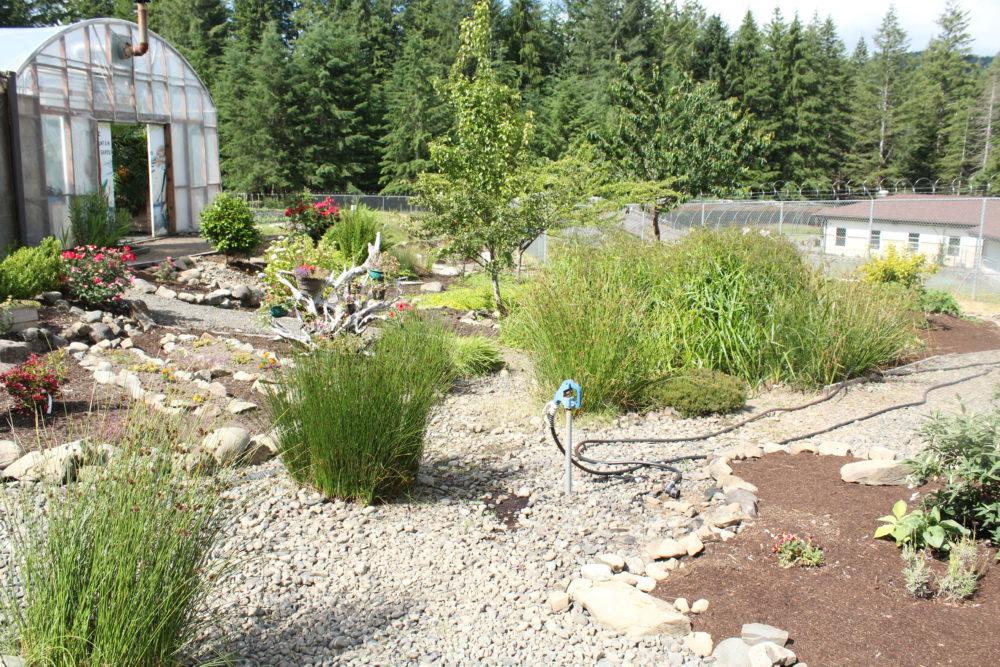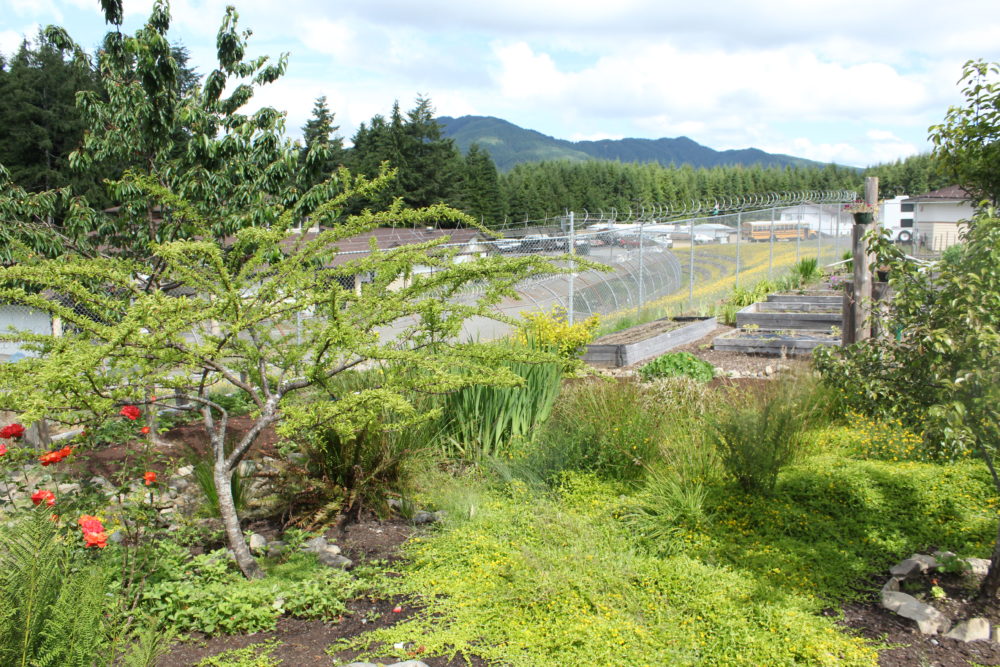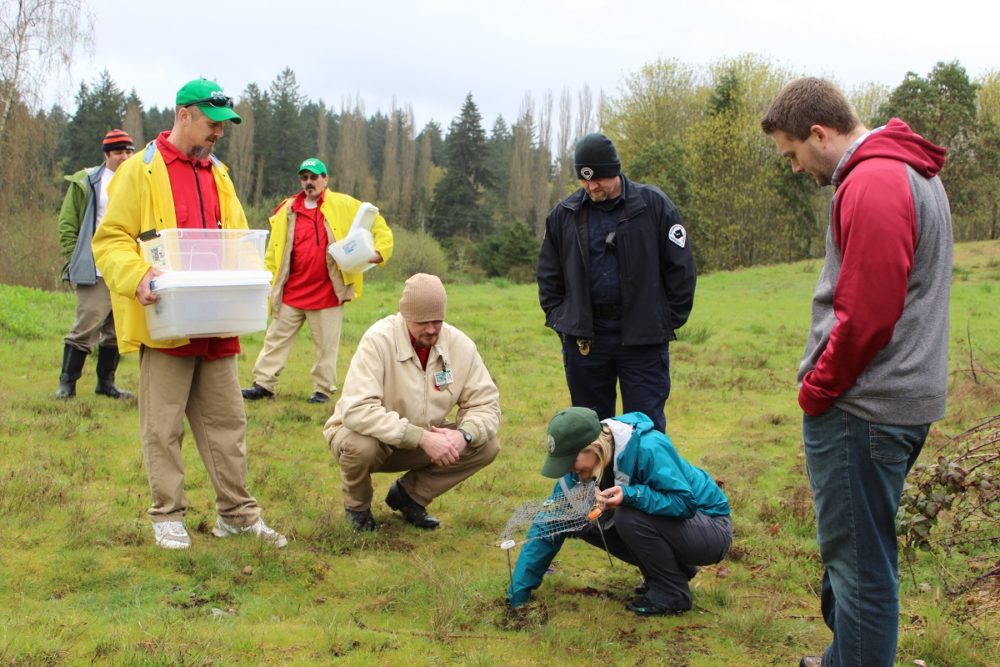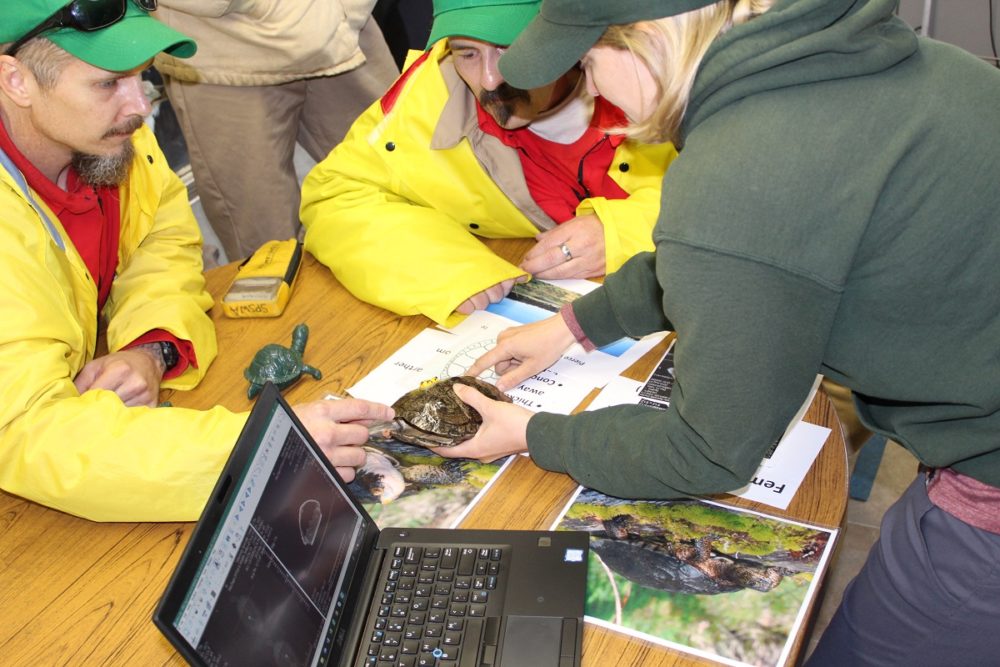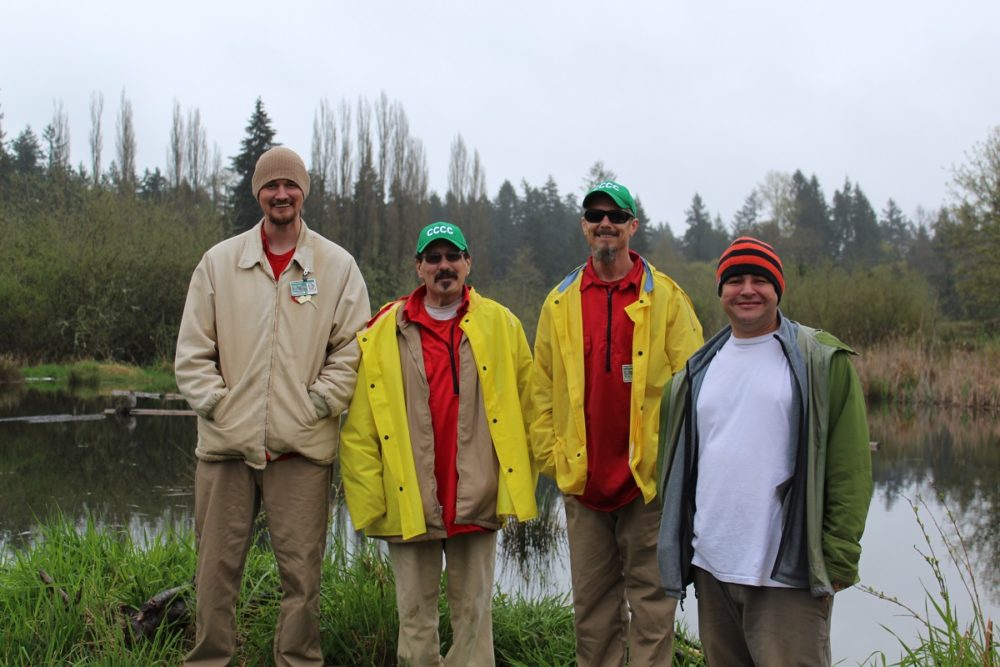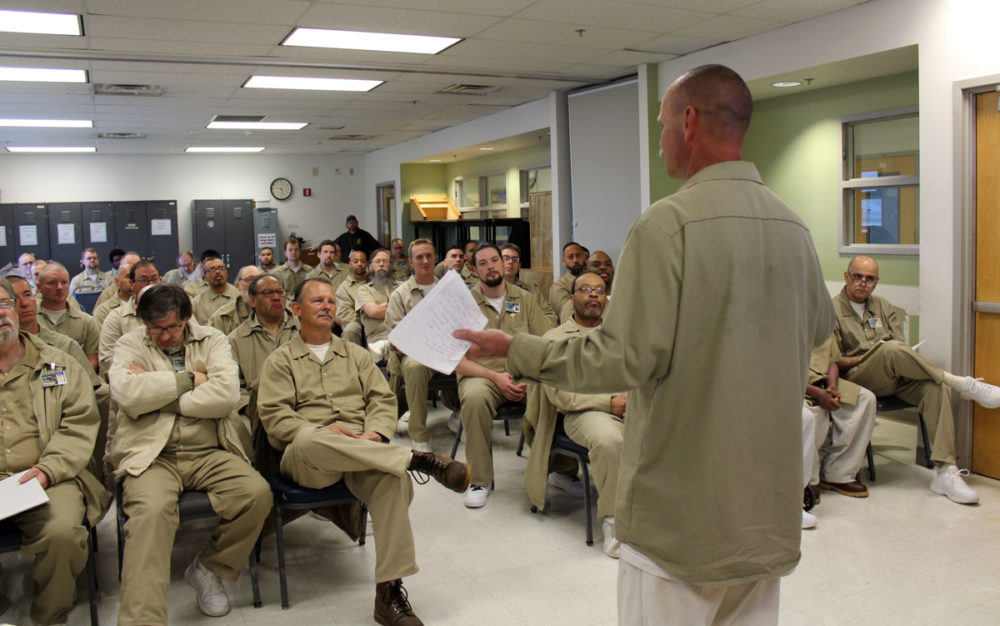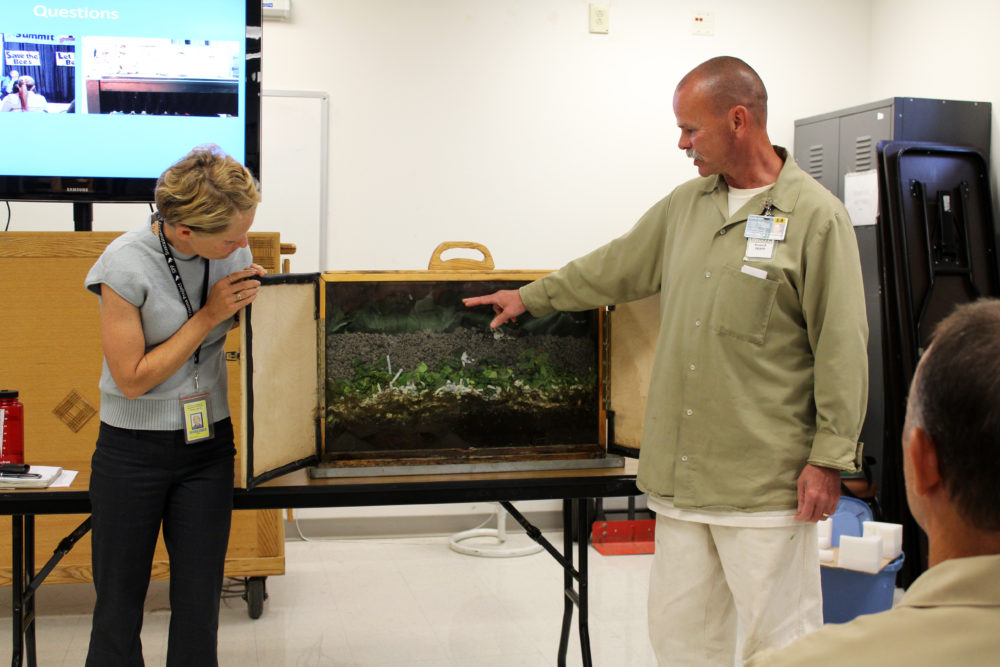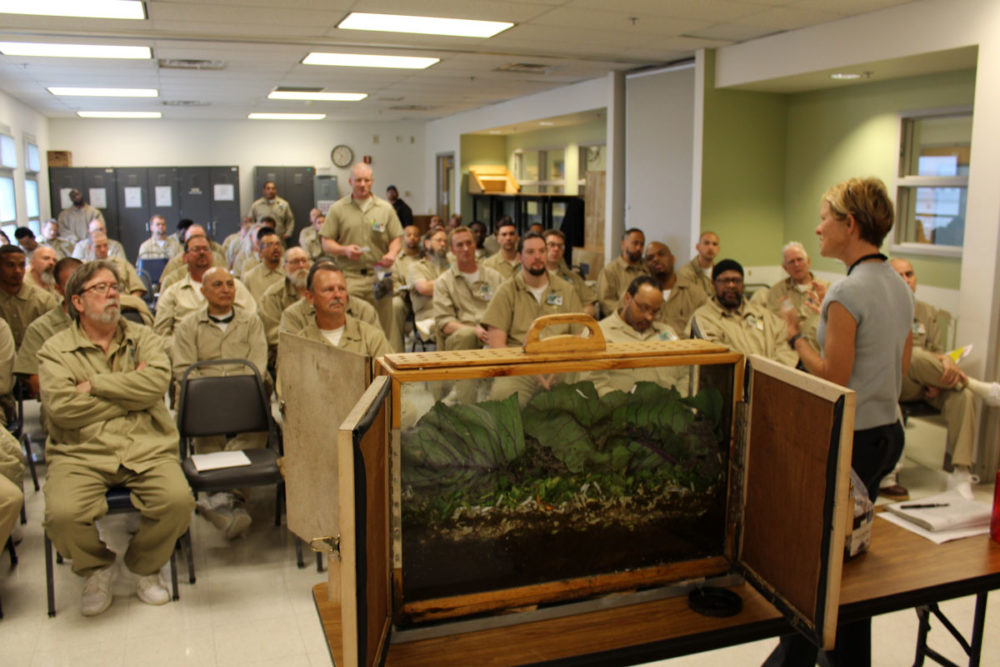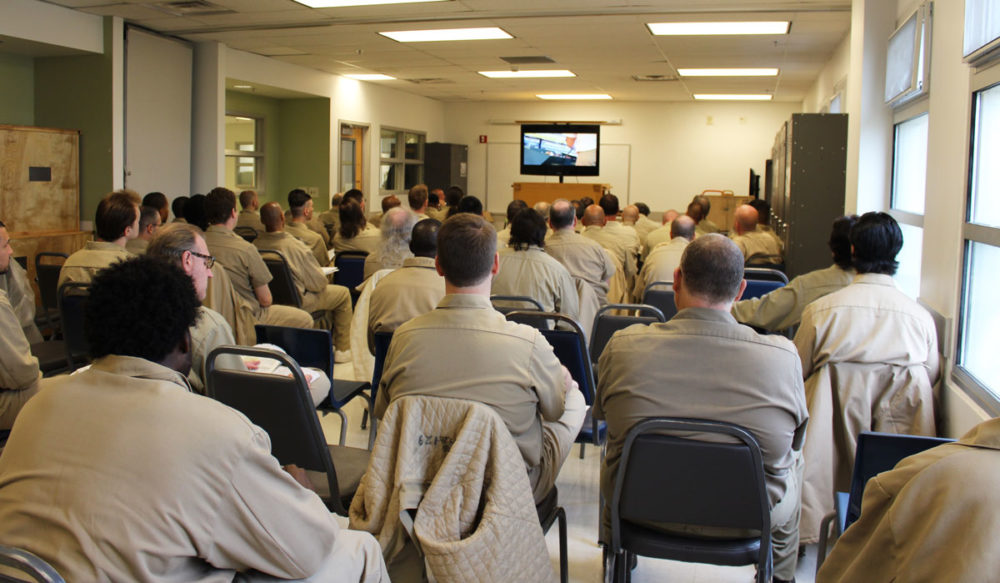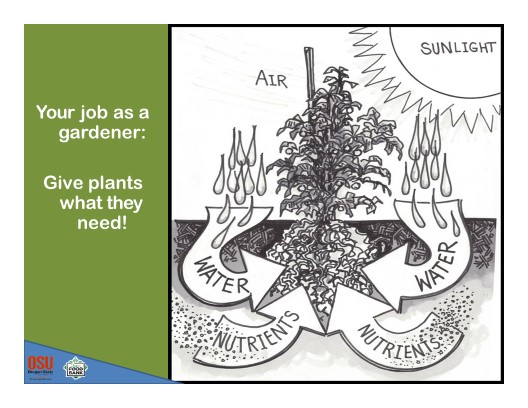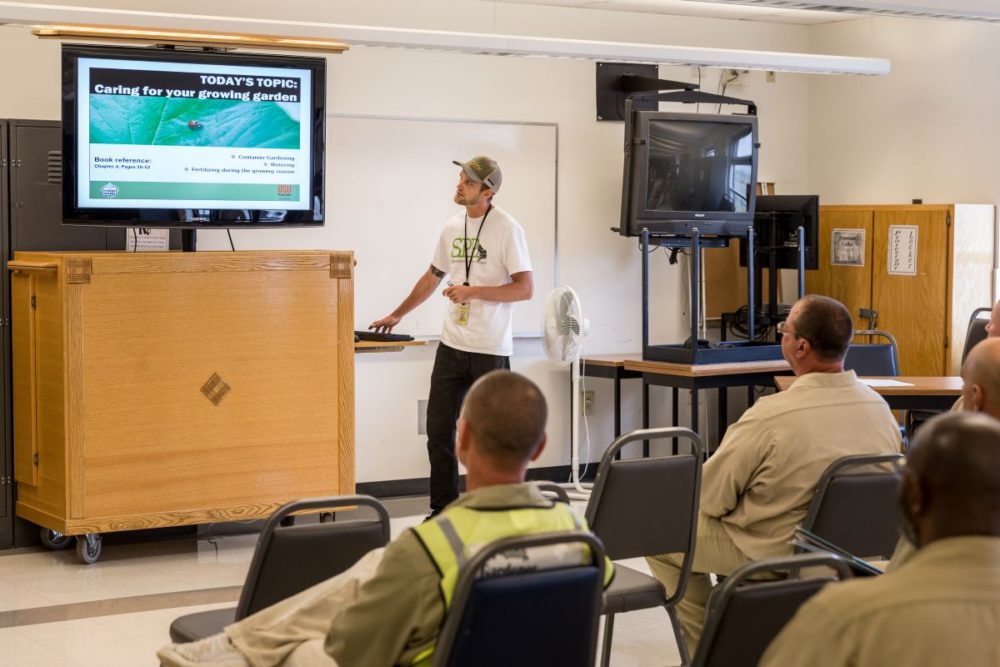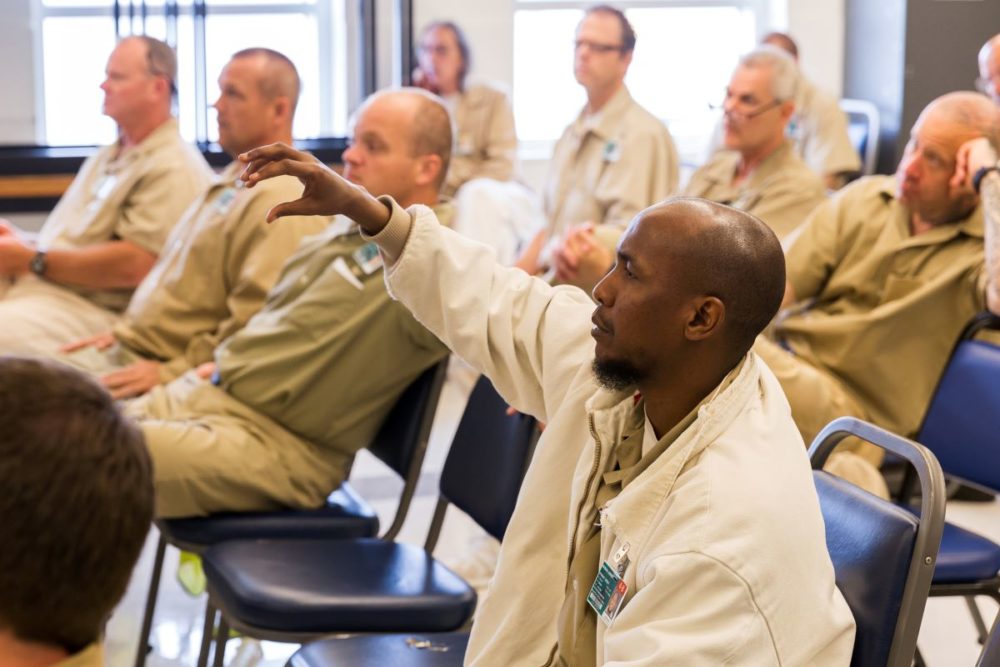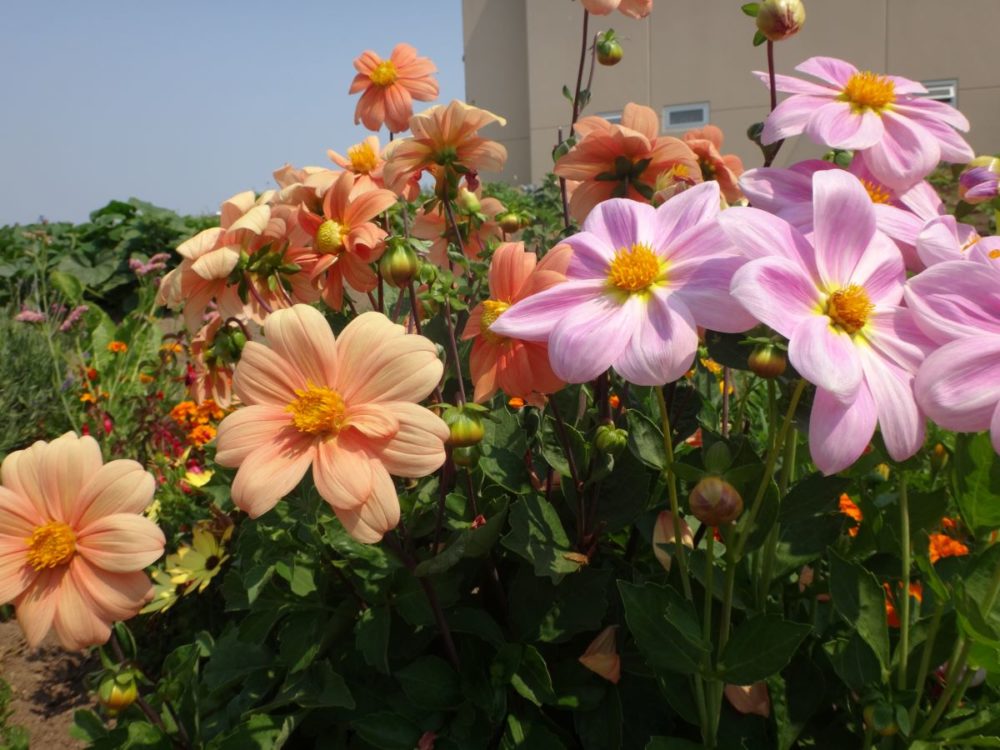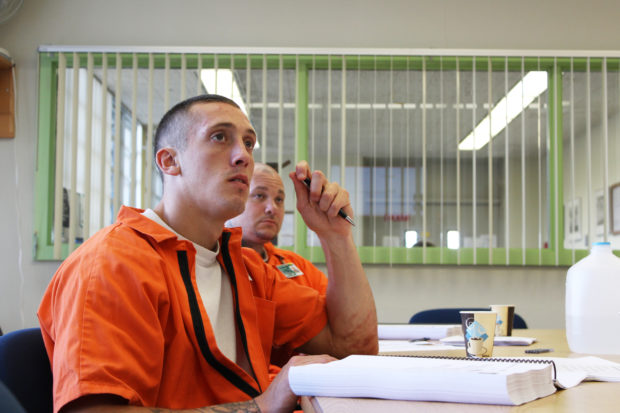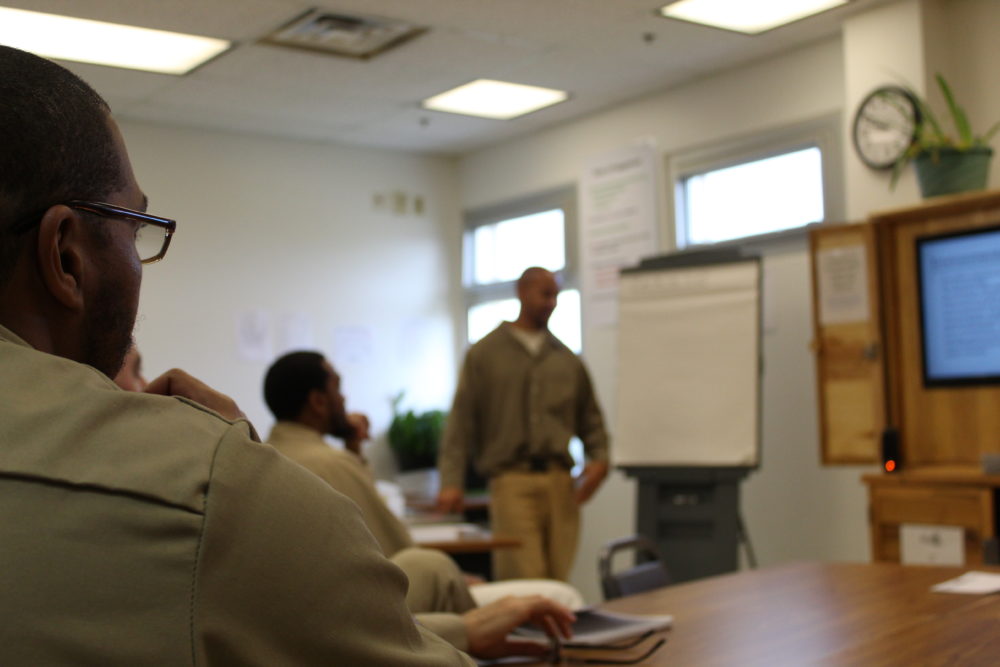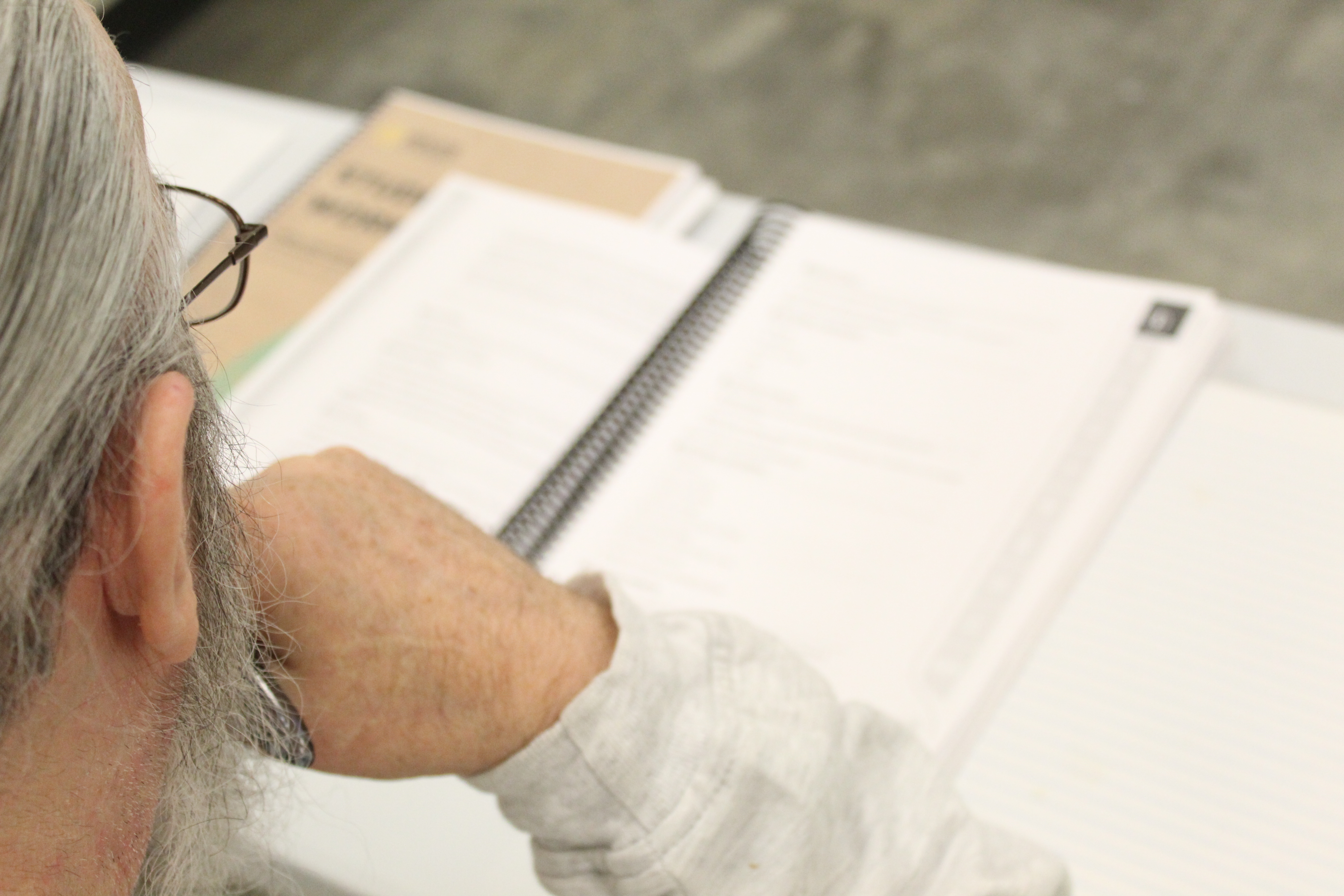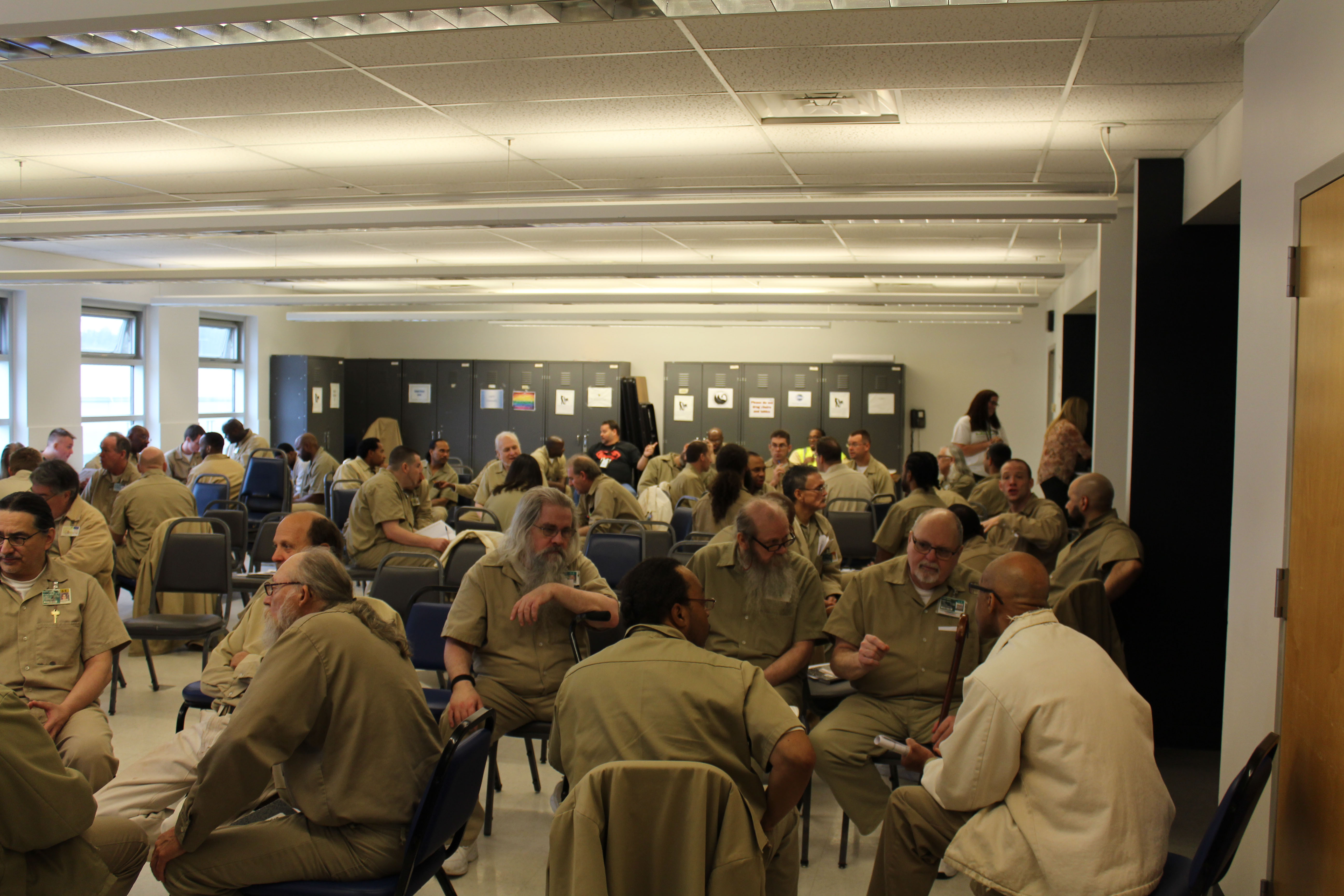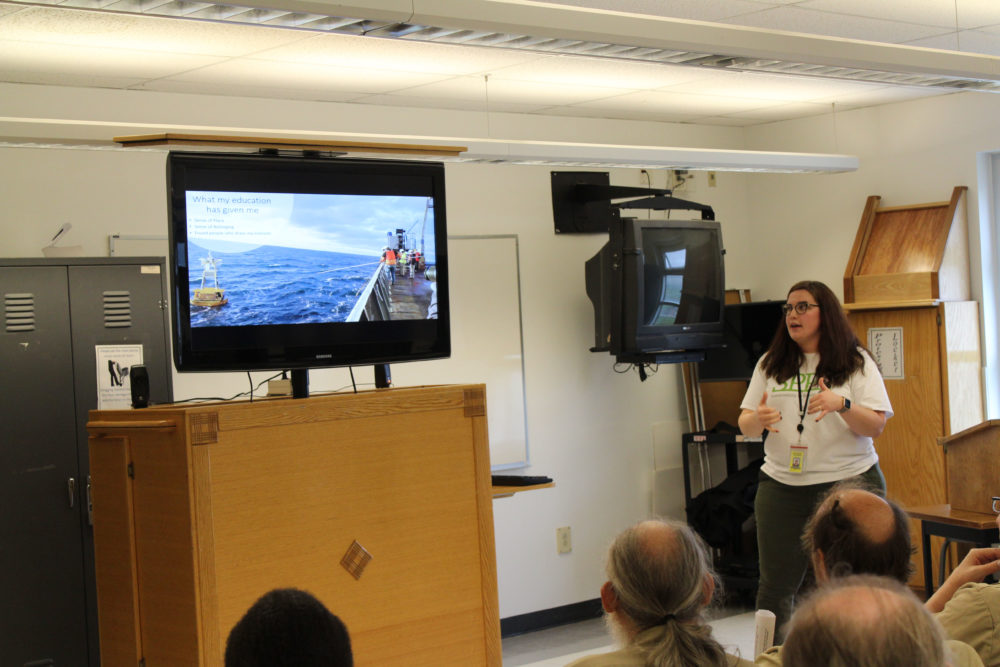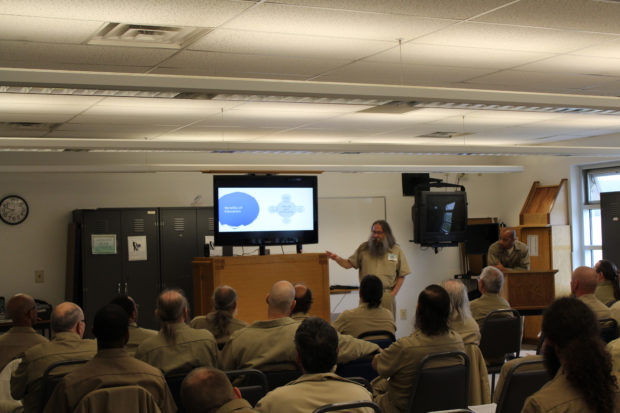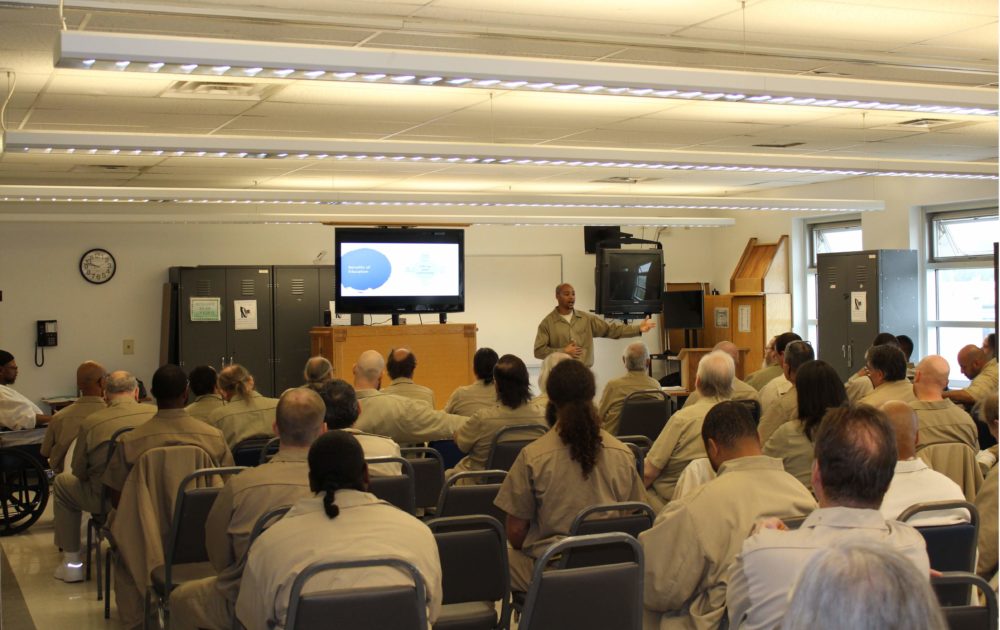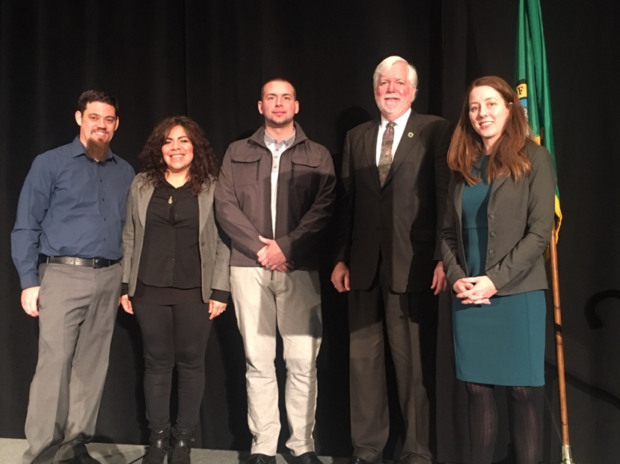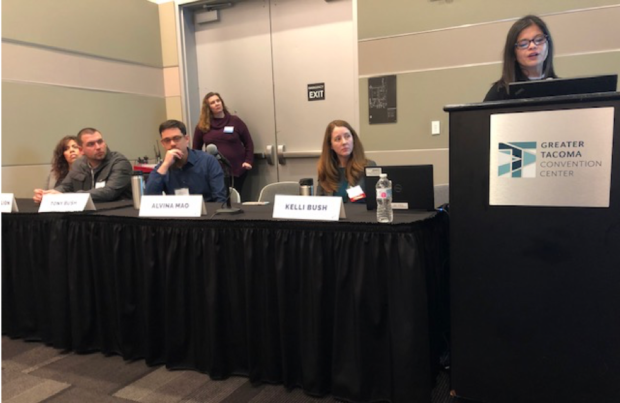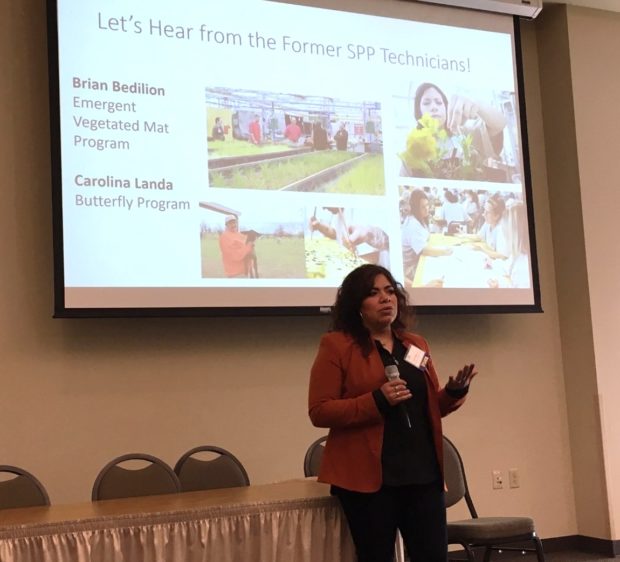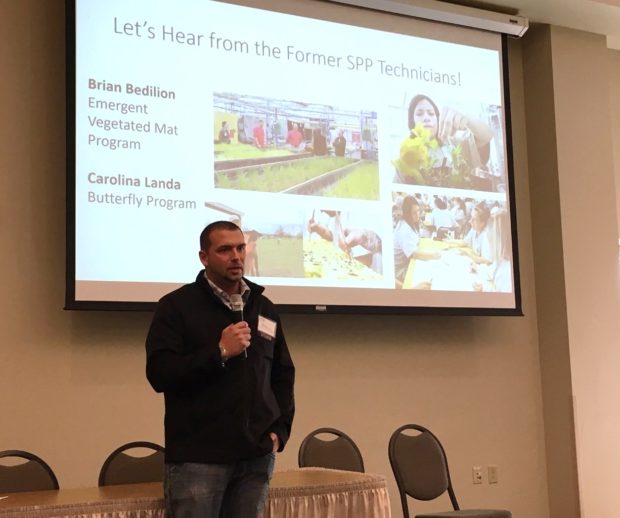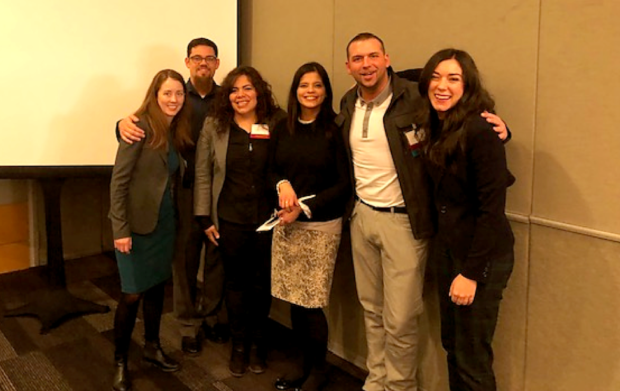By Carly Rose, SPP Curriculum Development Coordinator and Emerico, Gardening Curriculum Author

For the past six months, gardeners at Stafford Creek Corrections Center and Monroe Correctional Complex – Washington State Reformatory Unit have been helping to build the new Gardening Curriculum. To develop course chapters, authors are combining expertise gained through personal experience with knowledge from scholarly research. Authors are working on a voluntary basis: they elect to share based on their desire to explore and describe a particular topic; some of the chapters currently in development include Vermicomposting & Bokashi Composting, Soil Science, the Soil Food Web, Planting and Harvesting Vegetables in Prison, Seed Saving, and Aquaponics.
Developing part of a curriculum while incarcerated requires some creativity. In order to submit materials, authors have provided handwritten work that is then typed and formatted by myself. One author types his work into JPay (social email) and mails it to a family member who mails it back, which gives him a pre-typed manuscript to submit. Most authors also provide their own illustrations and diagrams to be included in the chapter. Authors use a mixture of narrative from personal experience, tips on gardening that are specific to a prison environment, and college-level scholarly research to produce their work. They provide instruction that is created by and intended for incarcerated gardeners across the country. Authors and I send materials back and forth so they may provide feedback and edits on separate drafts of their work. One of the authors, Emerico, offered a personal narrative on his motivation to learn and write about his topic, Aquaponics.
Introduction to Aquaponics by Emerico
I first became interested in aquaponics after reading a few articles and watching some educational television programs. I was working on the gardening crew at Stafford Creek and when the gardening classes started, I was thrilled to be included. Over time, I have learned every person—incarcerated or not—has a purpose in life. My purpose was building an aquaponics system with no budget. I had to lose my freedoms before I could find my purpose in life. This is where aquaponics all began for me. I had an idea, so I put it to paper and talked to the garden supervisor about the idea.
One of my first jobs on the garden crew was working with the hydroponics system. I found out that this type of system, which requires chemicals to grow plants and vegetables, is expensive and I believe far less healthy. My goal was to get away from using chemicals and go to more of a natural resource system. I thought about a way to build a small-scale aquaponics system that uses fish to feed the vegetables. After many attempts to get it approved, and with the help of the garden crew, we built a recycled materials aquaponics system. The first part of the vision of my idea came to life.

There is a sense of satisfaction when growing your own vegetables whether for self/family or others. I believe also that gardening can relieve stress. This country is blessed; there should not be anyone going hungry. We see too much senseless hunger in our country and throughout the world. There must be a solution to this problem. How can we do this? By making people aware and teaching them that aquaponics is not only a healthier way to grow produce, but is also cheaper. Aquaponics saves money in the long run for people and their families, and is a fun way to bring families together in the garden.
As for me, it is all about giving back and helping those in the community and throughout society that are less fortunate. The purpose is to get a finer perception of aquaponics through research. Anyone can pretty much build a small-scale aquaponics system with a limited budget and few resources. I hope this brief overview has helped you. Above all else, have fun.

Next Steps
The course is projected to pilot in winter of this year. The two teams of authors plan to be part of that process as well; they will be among the first to try out the new program. Their feedback during and after the trial run will help us further refine the course, and then be ready to share it statewide and beyond.





